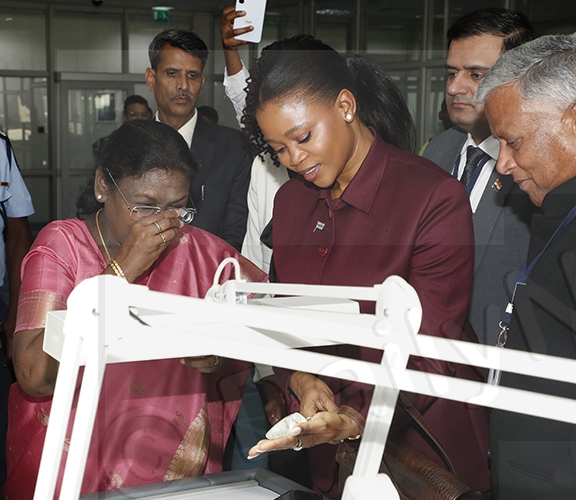Tourism industry improves
25 May 2021
Following the crippling of many sectors of the economy by the COVID-19 pandemic, tourism operators were optimistic that 2021 would be a better year, but that was not to be.
The introduction of direct flights into Chobe and Ngamiland raised hopes of a quick recovery of the tourism industry, but the hopes were dashed by the continuous movement restrictions, necessitated by a spike in COVID cases across the world.
While some operators are still struggling to recover from the effects of the pandemic, some have optimism that things will change for the better during the course of the year, while some already enjoy domestic tourism.
In random interviews, some operators revealed that the future of their industry still looked bleak, but some said they had high hopes that the situation would improve, as they had started receiving bookings from both international and local clients.
Mr Tuelo Ramontshonyana of Machaba Safaris revealed that since the easing of movement, they had noticed a slight improvement as they continued to receive international clientele in some of their camps in the Okavango Delta.
He noted that the pandemic had put many business activities on a break, saying that they were forced to close some of their camps because there was no business at all.
But, he stated that two of the camps; Gomoti Plains Camp in the eastern part of the delta and Ngoma within the Chobe Forest Reserve, remained operational.
Mr Ramontshonyana said they recently received international guests from Sweden and South Africa. “This is an indication that the industry will gradually bounce back and it is pleasing that we are keeping in touch with our international clients as they mostly book in advance,” he added.
He was hopeful that things would change around June and July as winter is known as a peak season in tourism. He however, decried low business during Easter holidays due to sudden movement restrictions, despite receiving more bookings from locals.
He said cancellations were a setback as they had to refund their clients, though they would have already spent money on preparations.
Mr Ramontshonyana acknowledged efforts by government to promote domestic tourism in order to keep the industry afloat, but stated that imposing sudden movement restrictions needed to be looked at.
He is of the view that domestic tourism could fuel the recovery of the tourism industry, if given the attention. He also hailed the government for coming up with interventions geared towards supporting the business community, citing the introduction of the Industry Support Facility (ISF) Fund, which is meant to sustain businesses, resuscitate the economy as well as to protect employment. He however said they had not yet taken advantage of it.
The manager of Okavango Kopano Mokoro Community Trust (OKMCT), which operates mokoro excursions, Mr Seikaneng Moepedi concurred that the industry was gradually recovering, as they continued to receive bookings.
Mr Moepedi said OKMCT’s mekoro were maintained and registered to ensure passenger safety, adding that the trust had freelance polers in the settlements to guide tourists who want to explore the delta using traditional canoes.
He said the trust also offered camping trips.
Mr Moepedi noted that since the beginning of the year, most of their boat stations had been relatively busy.
He said although the mekoro polers received some international tourists, they were enjoying great support from domestic tourists and expressed gratitude that most locals had developed an interest in travelling.
He said last year, the trust launched a speed boat project that targeted local tourists who wanted to experience the beauty of the famous Okavango Delta and the initiative was producing positive results.
During the Easter holidays, Mr Moepedi said they experienced an influx of tourists, both local and international, stating that they were now pinning hopes on domestic tourism to keep the industry afloat.
Meanwhile, in a recent stakeholder engagement meeting, some experts indicated that relying on international tourists was not working for the country, revealing that research had shown that domestic tourism could sustain the economy during the crisis.
During the meeting, Prof. Joseph Mbaiwa underscored the need to promote domestic and regional markets as well as the need to diversify the country’s tourism offerings.
Permanent Secretary in the Ministry of Environment, Natural Resources Conservation and Tourism, Dr Oldman Koboto concurred that domestic and regional tourism needed to be promoted, noting that from the little research conducted, it was evident that 84.6 per cent of tourists were from the SADC region. He said that was an indication that the sector could still make it without depending much on international clientele, adding ‘if we can facilitate regional tourism and harness the 86 per cent we can sustain the industry’..ENDS
Source : BOPA
Author : Esther Mmolai
Location : Maun
Event : Interview
Date : 25 May 2021





